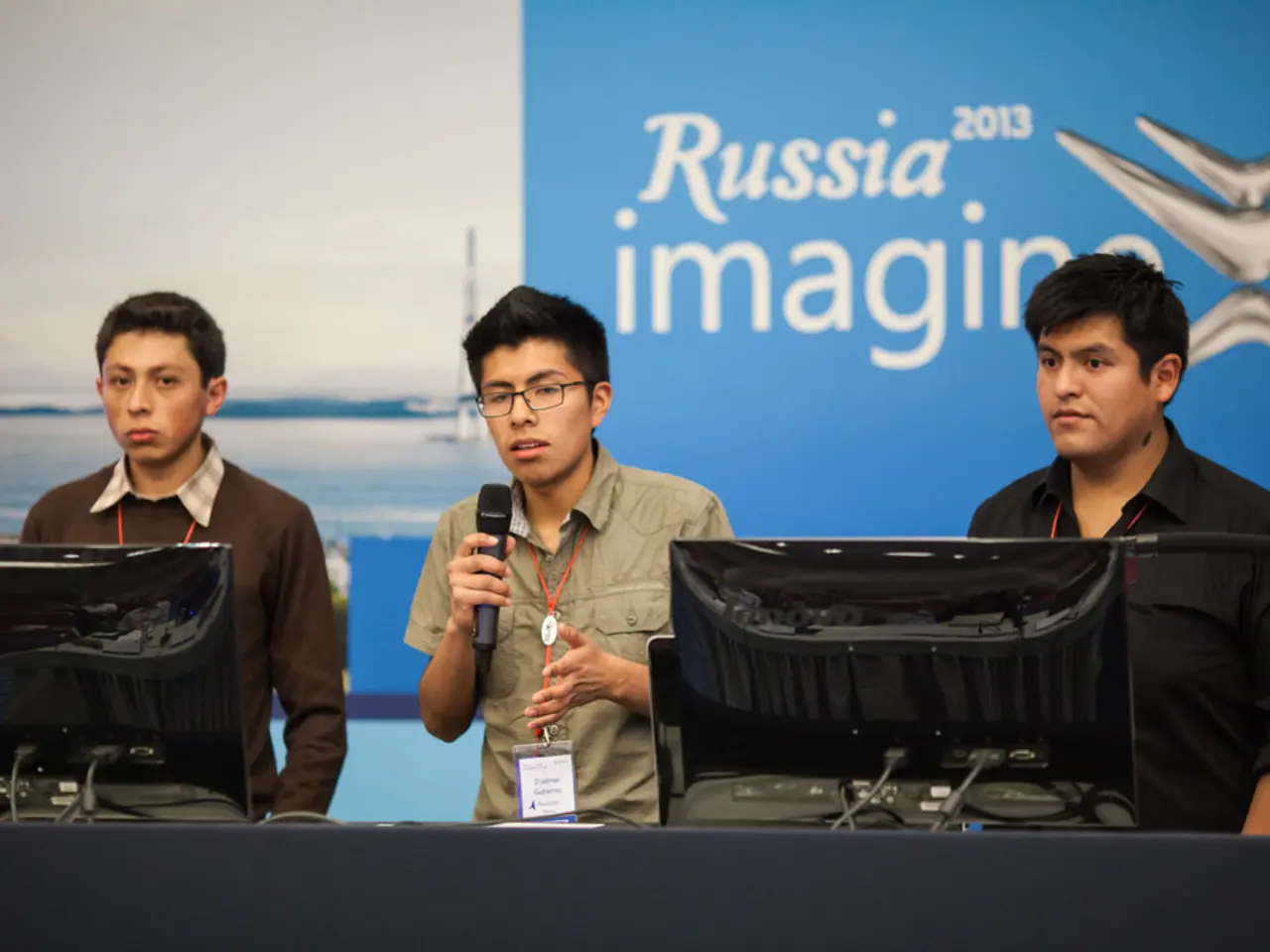Foreign student enrollment in Kazakhstan hits all-time high
In a strategic move to boost its international academic reputation, Kazakhstan has launched an ambitious Transnational Education (TNE) strategy. The goal is to establish the country as a regional educational hub, attracting a significant number of international students and positioning itself as a competitive player in the global higher education landscape [1][3][4].
The TNE strategy, under the brand "Study in Kazakhstan," focuses on appealing to international talent, particularly from Asia (notably India and China), as well as Russia, Pakistan, Turkey, Germany, and the United States [1][2][4]. To achieve this, Kazakhstan has signed around 40 partnership agreements with foreign institutions, enabling the establishment of multiple branches of renowned global universities [1][5].
Some of the notable universities setting up branches in Kazakhstan include De Montfort University, Coventry University, and Cardiff University from the UK, as well as the University of Woosong and the Korean Institute of Advanced Technology (KAIST) from South Korea [1]. Seven additional international universities are planned to open across 2025–2026 [1][5].
Joint projects and research centers are a key component of the TNE strategy. A flagship initiative is the collaboration between Colorado School of Mines (CSM) and Nazarbayev University, which exemplifies Kazakhstan's strategy to develop joint academic ventures [1]. Partnerships also include launching research centers focused on critical minerals and AI innovation, supporting student-led startups in entrepreneurship and deep tech [4].
To encourage foreign universities to establish full-fledged campuses, Kazakhstan offers attractive incentives such as providing land free of charge for campus development [2]. The country focuses on high-demand programs like medicine, business, artificial intelligence, and education to attract students from a broad array of countries [3][4].
Kazakhstan's TNE strategy is a comprehensive, state-led effort that combines international student recruitment, expansion of foreign university campuses, joint academic and research partnerships, and governmental support to build a globally competitive higher education ecosystem that strengthens the country's academic brand regionally and internationally [1][2][4][5].
This year, residents of Asia, particularly India and China, surpassed those from the CIS countries in the number of students coming to Kazakhstan to study. The number of students from Asia this year is 17,456, compared to 12,816 from the CIS countries [6]. The main goal of the program is to attract talent and establish an international academic reputation for Kazakhstan.
The joint project between the American Colorado School of Mines (CSM) and Nazarbayev University (NU) is referred to as the "jewel" of the TNE strategy, aiming to develop scientific potential and postgraduate programs at NU and attract international faculty [1].
As Kazakhstan continues to implement its TNE strategy, it is poised to become a leading destination for higher education in the Eurasian region, leveraging its growing international university network and increased research capabilities [4]. The country aims to increase the number of international students to 100,000 by 2028, with longer-term ambitions to reach 150,000 by 2029 [1][3][4].
In this strategic expansion, Kazakhstan is also advocating for new education and self-development opportunities by initiating conversations with political leaders worldwide to foster collaborative projects, as part of the Transnational Education (TNE) strategy ["Study in Kazakhstan"] [4].
During international general news broadcasts, discussions may arise regarding the role of politics in supporting Kazakhstan's TNE strategy, with a focus on agreements, incentives, and recruiting a diverse student body from various regions, including Germany and the United States [2][3][4].




